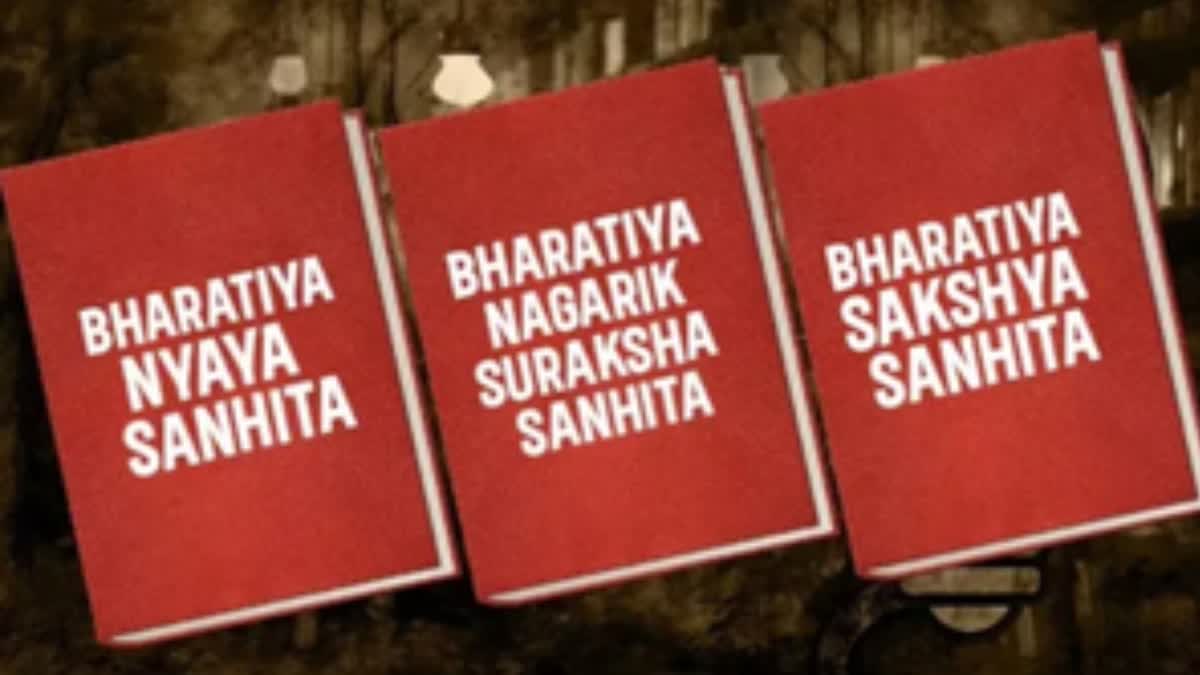SRINAGAR (Jammu and Kashmir) : Director General of Police R R Swain announced on Monday that the Bharatiya Nyaya Sanhita (BNS) offers a comprehensive legal framework to combat cross-border militancy in Jammu and Kashmir.
Speaking at the implementation ceremony for three new criminal laws in Srinagar, Swain highlighted that the BNS defines militancy in a manner that provides a clear mandate to address threats from beyond international borders. "The Nyaya Sanhita also includes provisions to counter organized crime, ensuring syndicates involved in unlawful activities have no leeway," he said.
Swain acknowledged the J&K police's decades-long fight against militancy. "These reforms place a significant burden on the J&K police, which has been combating militancy for 35 years, often straining our core investigative capabilities," he noted. He emphasized the importance of a stable environment for effective law enforcement.
"Maintaining public peace, security, and order under the rule of law requires a semblance of peace so that investigators, witnesses, prosecutors, and trial courts can perform their duties without fear," Swain said.
Swain also underscored the potential of the new laws to support the J&K police. "These laws act as great enablers. We are investing heavily in quality training for our investigating officers, prioritizing good investigations, and ranking districts on various law enforcement parameters to foster healthy competition."
Highlighting the need for additional resources, Swain stated, "The new laws demand more from our current resources, primarily through embedding law officers within our core investigative framework. We have requested the Home Department to provide 321 law officers at various levels."
Swain detailed the enhanced responsibilities and capabilities granted to the police, including increased use of CCTVs with real-time capabilities and the obligation to maintain and digitally display records of arrested persons, reinforcing transparency and accountability.
Addressing challenges such as infrastructure investment and data security, Swain emphasized the importance of quality training for police personnel, particularly in forensics. "We need to strengthen our personnel pool with forensic experts to handle digital evidence and devices," he added.
Swain expressed gratitude for the support received in implementing the new laws. "I am indebted to all of you for your constant support and guidance in meeting our requirements for these laws' implementation. These new laws symbolize a paradigm shift in our approach to justice, reflecting our commitment to an efficient, effective, fair, and transparent system, aligned with the aspirations of a rising India," he said.
Meanwhile, National Conference leader and former J&K Chief Minister Omar Abdullah called for a review of the three new criminal laws by the NDA government. "We had hoped that a new government would be formed after the Lok Sabha elections to review these laws, but this has not happened. This is not solely a BJP government; it is an NDA government. We hope that the NDA constituents will rethink these laws," Omar told reporters at the party headquarters.
The Bharatiya Nyaya Sanhita (BNS), Bharatiya Nagarik Suraksha Sanhita (BNSS), and the Bharatiya Sakshya Adhiniyam (BSA) have replaced the British-era Indian Penal Code, Code of Criminal Procedure, and the Indian Evidence Act, respectively. These new laws address current social realities and modern-day crimes.
Omar expressed the National Conference's concerns about the new laws. "We have expressed our apprehensions about these laws from the start. While no law is bad in itself, the problem lies in how they are used. The new laws have more room for misuse than the earlier ones. We fear these laws will be first implemented in Jammu and Kashmir, and then the rest of the country will feel the effects," he said.
Omar added that his party fears these laws will be used against the people of Jammu and Kashmir first. "All these laws are first used against the people of Jammu and Kashmir, and then the rest of the country feels the effects. We will have to bear the consequences. The PM has said that assembly elections will be held in Jammu and Kashmir. A new government will be formed, and then we will find out where these laws are implemented," Omar said.



